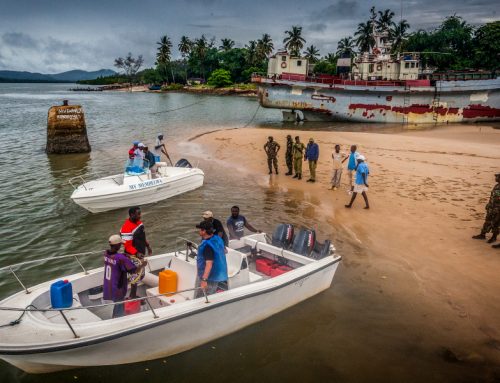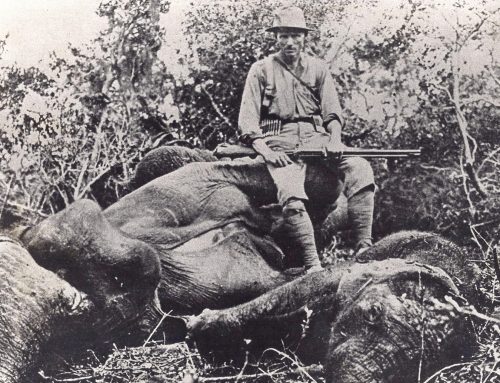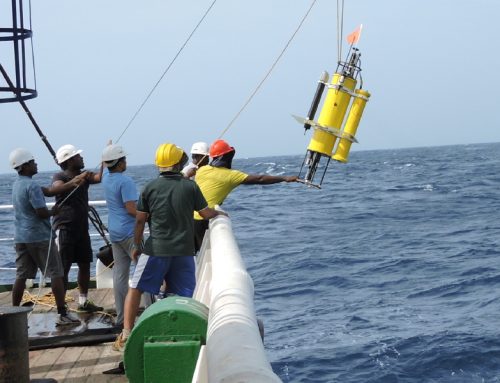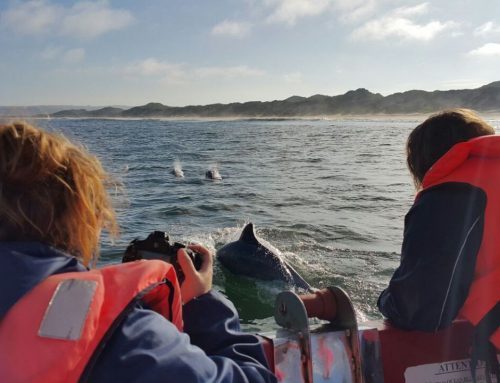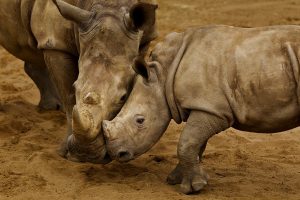
On Monday, 3 October, at CITES COP17 in Johannesburg, Swaziland’s proposal for limited, legal international trade in rhino horn was turned down. CITES COP17 is one of the world’s most important wildlife trade conferences and was held from 24 September to 5 October 2016. Currently 182 countries are signatories to CITES. Togo will be the 183rd from the end of October.
‘The WWF welcomes the decision not to reopen the international trade in horn and applauds South Africa for having come to the “no international trade” decision ahead of the conference. Given the scale of trafficking of rhino horns by transnational criminal networks and the extent of the illegal domestic markets in Asia, the risks are too great for wild rhino populations,’ comments WWF-SA Rhino Programme Manager, Dr Jo Shaw.
In South Africa there is also a moratorium on domestic trade of rhino horn within our borders, which is currently being contested at the Constitutional Court.
Dr Shaw explains that, despite the need for additional funds to protect rhinos – which rhino horn sales could arguably augment, ‘current conditions are not conducive to regulating a legal trade effectively, and legalising trade in rhino horn could pave the way for more rhinos being poached’.
Dr Shaw adds that the WWF further welcomes the strong signal from CITES that it will be holding Vietnam and Mozambique to account as key countries complicit in illegal rhino horn trade. ‘What we need now is firm action by CITES and all concerned to address poaching, trafficking and consumption of rhino horn.’
The WWF as a global conservation organisation is at the forefront of local and international efforts to stop rhino and elephant poaching for the illegal rhino horn and elephant ivory trade. The WWF opposes all trade in rhino horn and ivory and all proposals to resume such trade.
WWF Director of Conservation, Dr Deon Nel, explains that rhino poaching losses across Africa in 2015 were the highest in decades.
‘Targeted and strengthened law enforcement activities are required to tackle poaching in Africa, trafficking of horns internationally and consumption in Asia as well as corruption along the entire chain. At the same time, rhino populations must be managed to maximise growth rates,’ he says.
The fundamental issues behind the illegal ivory trade that require concentrated attention include corruption, inadequate laws and lack of enforcement in countries along the illegal trade chain, and rampant demand in Asia.
At COP16 in Bangkok in 2013 attention was given to the issue of those countries whose inadequate implementation of CITES rules was contributing to illegal ivory trade. This resulted in the development of the National Ivory Action Plan, under which 19 African and Asian countries were required to take timebound action to address gaps in their legislation and enforcement or face sanctions.
As yet, this is not taking any pressure off the all-consuming fight against rhino poachers on the ground in South Africa’s wildlife reserves. Field officers and anti-poaching units are working round the clock, but all additional support, including dog units, community cooperation and transnational cooperation in the combating of international crime syndicates involved in rhino poaching and other forms of trafficking, is imperative.
The WWF Nedbank Green Trust is helping to fund a rhino conservation and international crime syndicate dismantling strategy. Dr Shaw is driving the five-point strategy, which includes:
- Continuing the Black Rhino Range Expansion Project to help to boost black rhino population growth rates by relocating founder populations to additional areas that are committed to protecting them.
- Working with people and communities who border on wildlife and protected areas to create cooperation linkages and benefits.
- Supporting law enforcement activities with forensic, judicial and information management tools.
- Operating on the basis that illegal wildlife trade is an international problem that cannot be solved within our borders. It requires profound cooperation between us and other key countries in the illicit supply chain, notably Mozambique and Vietnam.
- Working on understanding the international rhino horn market, knowing who the consumers are in key rhino horn markets, such as Vietnam, and then using this information to develop targeted behaviour-changing campaigns.
The approach of the WWF-SA and WWF Nedbank Green Trust is always to partner with communities in conservation, and one of the current projects in the five-point strategy is working with three communities adjacent to key wildlife areas in KwaZulu-Natal, Limpopo and on the Mozambique border of the Kruger National Park.
The project is called ‘Learning by doing: Catalysing community-based natural‑resource management (CBNRM) as an approach to benefit wildlife conservation in South Africa’. It is headed by Dr Shaw, who explains: ‘When communities feel they are invested in protecting the rhino and other wildlife, then people are far more likely to support conservation initiatives by coming forward with information about potential poaching operations or the arrival of people who are not from the area’.
The project is working on ‘creating positive relationships around rhino and wildlife conservation, with opportunities for partner communities ranging from employment and tourism to natural-resource benefits, such as an investment by the reserves in educational and medical facilities in the communities’, says Nelisiwe Vundla, an honours graduate from the 2015/16 Graduate Development Programme, funded by the WWF Nedbank Green Trust.
Her internship, under the mentorship of Dr Shaw, focused on how communities can help rhino conservation. Her internship is now completed and she will be taking up a post in the WWF-SA Rhino Programme, working on CBNRM.
To extend the CBNRM approach to many more communities it has been included in the curriculum of the diploma, certificate and short-course training of the Southern African Wildlife College (SAWC), situated 10 km west of the Orpen Gate of the Kruger National Park in Limpopo.
‘We are involved in the training of new facilitators at the SAWC, and talking to government about the need to invest in this approach throughout South Africa on state-owned and private reserves. Several private reserves have already taken this further,’ explains Dr Shaw, who regards this as a key factor in the sustainability of wildlife conservation and in the collective combating of rhino poaching.
The WWF is one of the founding members of the SAWC and the WWF Nedbank Green Trust funds the fulltime positions of two staffmembers at the college.
The SAWC’s Chief Executive Officer, Theresa Sowry, explains that the college focuses on conservation education, training and skills development of young people, many of them previously unemployed. The college is an accredited training institute and has aligned its curricula with the standards of the South African Qualification Authority and the National Qualifications Framework to ensure both national and international recognition.
Field ranger training at the SAWC ensures that students graduate as well-trained, motivated rangers with advanced clandestine skills for anti-poaching operations. The SAWC also has a canine unit, where tracker dogs are trained to use their sense of smell to apprehend poachers. The WWF Nedbank Green Trust is funding training posts in this unit, led by consultant and dog-training specialist Johan van Straaten, who, together with trainee handler from the area, Wisdom Makhubele, is currently training several young dogs for placement in a range of wildlife reserves.
Makhubele is one of a growing number of SAWC graduates entering the wildlife guiding and monitoring field who will be part of South Africa’s wildlife and conservation future. He says: ‘I cannot imagine a wildlife reserve without rhino and elephant, and I am playing my part to keep them safe and ensure they have a future.’
